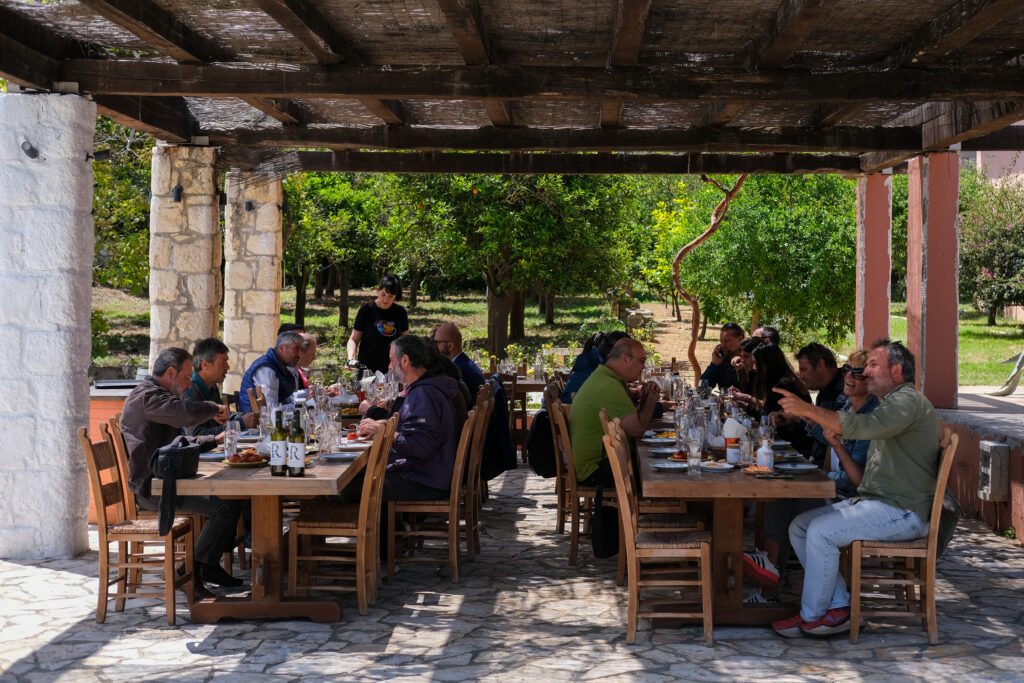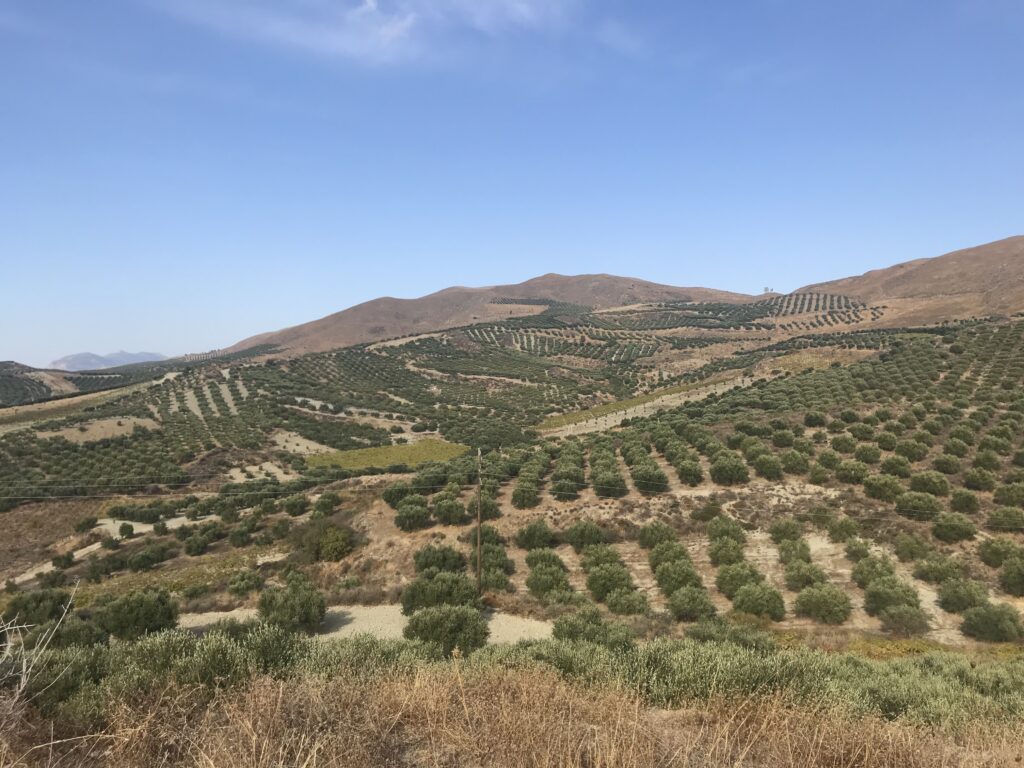:format(webp))
TUI Field To Fork Greece - Regenerative Agriculture in Tourism Destinations
Futouris and the TUI Care Foundation are going one step further with their commitment on the island of Crete and are working with local partners to support farmers and food producers in switching to regenerative agriculture and linking them with players in the tourism industry. One focus of the project is to reduce the carbon footprint of agricultural products
:format(webp))
Project goals
Training farmers on Crete and Rhodes on regenerative agricultural practices.
Supporting farmers who are already practising sustainable agriculture to switch to regenerative agriculture.
Training hotels and food producers to calculate and reduce the carbon footprint of food.
Networking farmers with food producers and hotels to increase the sale of regeneratively grown agricultural products in the tourism sector.
Developing tasting events for the regeneratively grown agricultural products for guests
Transferring the ideas and concept from Crete to the island of Rhodes.
Impact of the climate crisis hits farmers particularly hard
Farmers are suffering particularly hard from the effects of the climate crisis. The loss of biodiversity, water scarcity and increasingly frequent extreme climate phenomena are leading to crop failures and yield fluctuations.
At the same time, the food industry is one of the main causes of the climate crisis and the loss of biodiversity. For example, industrial agriculture accounts for around 25% of global greenhouse gas emissions.
In some areas of the southern Aegean in Greece, the impact of desertification and soil degradation can already be seen. This leads to a growing need for chemical inputs to maintain and secure production, which in turn exacerbates biodiversity loss and climate change. Regenerative agricultural practices help to avoid emissions while removing CO2 from the atmosphere and storing it in the soil, as well as improving soil health and creating biodiversity.
However, switching to regenerative agriculture is complicated by various factors, such as however, conversion to regenerative agriculture is hampered by various factors, such as farmers' lack of experience and knowledge of the basic concepts.
Futouris and TUI Care Foundation expand engagement on Crete
To address these challenges, Futouris and the TUI Care Foundation, in collaboration with the Sustainable Food Destination Organization (SFDO), have launched the TUI Field to Fork Greece project. The aim is to support 300 farmers on the Greek island of Crete and 200 on the island of Rhodes in converting to regenerative agricultural practices. A comprehensive learning and practice cycle is being implemented, with a particular focus on reducing the carbon footprint of agricultural products. This applies in particular to the production of olive oil, wine, bananas, avocados, honey and herbs
In addition, the participating farmers are networked with 14 food businesses and the tourism industry, including eight hotels that are partners of the program.

The aim is to create improved income opportunities, expand the range of sustainable food products and raise awareness of regenerative food production among employees and tourists. To this end, employees of participating businesses are trained to better understand the benefits of sustainable practices in their operations and to recognize the necessity and urgency of change. The aim is to achieve long-term commitment and interest in the topic of sustainable food. In addition to the eight hotels, a local retail chain is also part of the program to offer sustainable food to tourists and the local population. The aim of all these measures is to create sustainable food supply chains in tourism and other sectors.
Joint project is based on previous project on Crete
The current project builds on the joint project "Crete - on the way to becoming a model destination for sustainable food", which Futouris and the TUI Care Foundation supported on Crete until 2019. Here, the basis for a more sustainable food supply in tourism was created by introducing the concept of sustainable agriculture and creating links with the tourism sector. In total, around 200 farmers were trained in sustainable agriculture and 27 sustainably labeled products (wines, olive oil and bread) were produced with five food producers and sold to guests in seven participating hotels. Guests were also able to sample the products at tastings or on excursions.

Project activities
Training of at least 500 farmers on Crete and Rhodes on regenerative agricultural practices with a focus on climate protection and calculating the carbon footprint of food.
Implementation of the practices learned with 18 farmers on their own fields for 5 products: Olives, grapes, bananas, avocados, honey and herbs.
Training of at least 6 hotels and at least 14 food producers on calculating and reducing the carbon footprint of food.
Training of at least 6 hotels and 14 food producers on regenerative agriculture and climate protection.
Development of a concept for local tasting events so that guests can taste the regeneratively grown and produced food.
Implementation of training and workshops on regenerative agriculture for farmers and producers on Rhodes.
What does regenerative agriculture mean?
Regenerative agricultural practices contribute to humus enrichment in the soil. This removes CO2 from the atmosphere and stores it in the soil, which in turn improves soil structure, increases fertility and makes the soil less susceptible to extreme weather events. In addition, biodiversity in the fields is increased as chemical fertilizers or similar are not used.
